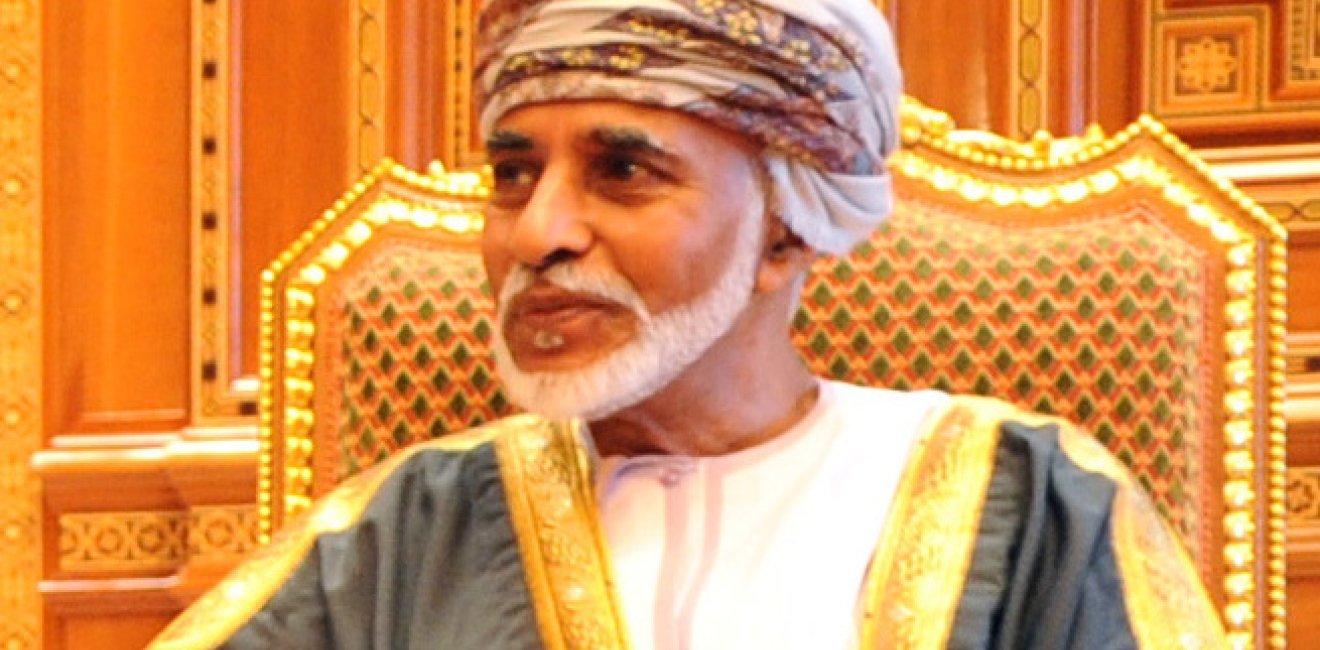Every year, Sultan Qaboos, who died on January 10, 2020, traveled around Oman to meet with his subjects. One year, while meeting with a group of people in a small rural town, one of his subjects asked for na’il gadeed, which in most places, including Oman, means new sandals. The Sultan, instead of giving the man new sandals, gave him a new 4x4, because he knew that in this region, na’il meant car.
It wasn’t the story necessarily that impressed me, although it did demonstrate Sultan Qaboos’s nuanced understanding of even the most obscure parts of his country, but instead it was the reverence in the eyes of the man who told it to me. It wasn’t the forced, antsy reverence of people living under most dictatorships, who are worried that they are going to say something that can be misconstrued as critical. Instead, it was a sincere reverence--the same that most Omanis radiated when speaking about their Sultan, particularly the Omanis who remember what their country was like before Sultan Qaboos came to power in 1970.
It wasn’t the forced, antsy reverence of people living under most dictatorships... Instead, it was a sincere reverence -- the same that most Omanis radiated when speaking about their Sultan...
Qaboos overthrew his father in a military coup in June 1970, because, according to a New York Times article, “I have watched with growing [dismay] and increasing anger the inability of my father to use the new‐found wealth of this country for the needs of its people. That is why I have taken control.” The country that Qaboos now led had little in the way of infrastructure; in a country the size of Germany there were only 3 schools, 2 hospitals, and 10 kilometers of paved roads. Qaboos declared 1970 as the year of the Omani renaissance and used the country’s newfound oil wealth to develop Oman into a country he believed his subjects deserved.
During the next 50 years, Qaboos transformed Oman into a fully developed rentier state. According to the World Bank, 98.7 percent of Oman’s youth is literate, and Omanis receive free basic healthcare. Qaboos then positioned Oman as a destination for tourists (seeking luxury and sport) and Arabic language learners. He also expanded the rights and roles of women; Oman’s Basic Law established gender equality, and Qaboos appointed women to key positions such as Ambassador to the United States (women’s representation in elected positions remains low and women do continue to face discrimination in certain family legal matters). Qaboos was concerned that Oman would lose its culture and character during the rapid economic development (much like some of Oman’s neighbors), and took special care to nurture a strong Omani national identity; the Omani tourism ministry highlights how Oman has avoided relying on charmless urban high rises and has instead preserved its unique architectural traditions.
Qaboos himself was responsible for the changes; in Oman, the only single person with any meaningful power was the Sultan. Qaboos was Oman’s Prime Minister, Minister of Foreign Affairs, and Minister of Defense, among other positions. While there are elections for a representative body--the Shura Council--its function is consultative not legislative. The Sultan had no hereditary heirs and did not publicly choose a favorite of his relatives as a successor. Qaboos very much was “the state.”
The Sultan had no hereditary heirs and did not publicly choose a favorite of his relatives as a successor. Qaboos very much was “the state.”
As one could imagine, not everyone was willing to overlook Qaboos’s autocratic grip on Oman in exchange for his legacy developing the country. Protests sprang up throughout the country in January 2018 in response to high youth unemployment (the 2011 Arab Spring protests were inspired by the same reason). Dissenters in Oman are usually thrown in jail, although many of the protesters from the January 2018 demonstrations were released. However, political prisoners in Oman have been subjected to torture; more recently, human rights centers in the Gulf reported that Hassan al-Basham, who had been serving a sentence since 2015 for “the use of the Internet in what might be prejudicial to religious values,” had died after “sudden deterioration in his heath due to the sharp drop in his blood sugar level” coupled with inadequate medical care. Young professionals and students I spoke with the last time I was in Oman recognized the limitations of living under autocratic rule, including limits on journalism, certain speech, and most obviously, democratic representation in government. However, most were still generally pleased with the Sultan.
In the international arena, Sultan Qaboos was most well known for carrying out a neutral foreign policy. Oman is unique in that it was a member of the Gulf Cooperation Council, long dominated by Saudi Arabia, but also has solid diplomatic relations with Iran. Through this neutrality, Qaboos was able to develop a role for Oman as a peacemaker in the region and beyond. The early, and highly sensitive, P5+1 nuclear negotiations with Iran were hosted by the Sultan in Muscat, and Sultan Qaboos was instrumental in ensuring the release of the U.S. hikers who were captured by Iranian border guards while they were hiking in the mountains of Iraqi Kurdistan in 2009. Lastly, Qaboos hosted Israeli Prime Ministers Benjamin Netanyahu in 2018 and Yitzhak Rabin in 1994, moves that would be unimaginable in most other countries in the region, especially in the Gulf.
Oman’s modern identity has been undeniably interlinked with the life and work of Sultan Qaboos, and Oman likely has a potentially difficult transition ahead. This transition will be especially troublesome for the new sultan: Sultan Haitham bin Tariq al-Said, who Qaboos personally selected to succeed him in a document that was kept private until after his passing. Haitham is Qaboos’s cousin and has gained experience in senior positions in the Ministry of Foreign Affairs and as the Minister of Culture. He was also the Chairman of the committee for the future vision of “Oman 2040.” Haitham was educated at Oxford and is considered to be well-respected representative of Oman abroad. His background, reputation, and career were likely anticipated to project a sense of stability and continuity for Omanis, most of whom have not known another leader, and the international community alike.
Sultan Haitham begins his tenure with a country with high youth unemployment rate, uncertain oil prices, a budget deficit of 8 percent of the country’s GDP (down from 21 percent in 2016), water shortages, and an ever-increasingly hostile and polarized region. It seems as though Haitham may address these issues by continuing the policies of Qaboos. In a speech on Saturday, January 11, Haitham stated, “We will follow the path of the late sultan,” and that Oman would “continue to assist in resolving disputes peacefully.” Policies that continue economic diversification away from oil and gas, workforce expansion beyond the public sector, and neutral foreign policy are undoubtedly the best course of action to maintain the stability and prosperity that Sultan Qaboos envisioned and worked to achieve.
Julia Craig Romano is currently a World History and Geography II teacher at KIPP DC College Preparatory and formerly acted as the program assistant for the Middle East Program at the Wilson Center from 2013-2017.
The views expressed in this article are those of the author and do not reflect an official position of the Wilson Center.
Author


Middle East Program
The Wilson Center’s Middle East Program serves as a crucial resource for the policymaking community and beyond, providing analyses and research that helps inform US foreign policymaking, stimulates public debate, and expands knowledge about issues in the wider Middle East and North Africa (MENA) region. Read more

Explore More
Browse Insights & Analysis
MENA360°

Women are the Catalysts for Change in Lebanon


